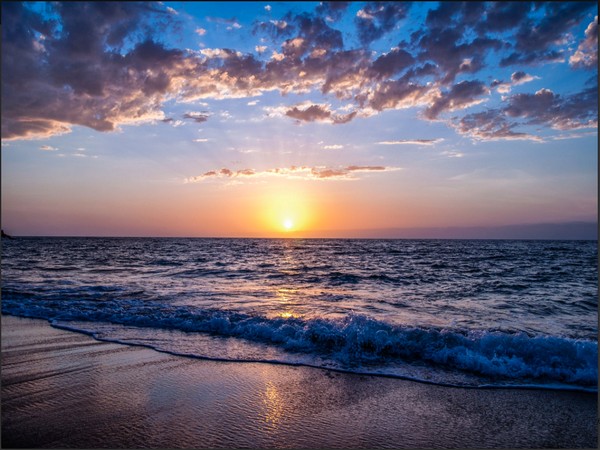
Washington: A new study has revealed that as the atmosphere and oceans warm, marine cold spells are becoming less intense and less frequent.
The study was published in the journal, 'American Geophysical Union.' Today, the oceans experience just 25 per cent of the number of cold spell days they did in the 1980s, and cold spells are about 15 per cent less intense, researchers found. Weaker cold spells could mean they're less likely to cause mass die-off events, but having fewer cold spells also means refuges and recovery periods from marine heatwaves are disappearing.
"Recently, studies have focused on heatwaves and warm ocean temperature events, less so the cold events," said lead author Yuxin Wang, an ocean and climate scientist at the University of Tasmania.
Because marine cold spells have both positive and negative impacts, Wang said, understanding when, where and why these spells occur is critical for predicting their presence in the future. Predicting cold spells could be important for fisheries' long-term planning and for ensuring catch limits are sustainable.
"Extreme events either warm or cold can bring an ecosystem to the edge," said Sofia Darmaraki, a physical oceanographer at the National and Kapodistrian University of Athens who was not involved in the study.
"Establishing the oceans' baseline climatology and sensitivity of heat waves and cold spells to temperature changes, like they did in this study, is a burning question for the community," she added.
Marine heatwaves, like heat waves over land, are natural phenomena becoming more frequent and intense in some places as a result of anthropogenic climate change. Similarly, marine cold spells are natural, but their rates are changing around the world. Over the past decade, cold spells have occurred roughly 10 days per year globally, a notable drop from about 40 days per year in 1985.
To understand when and where marine cold spells occur and how those patterns have changed over time, Wang and her colleagues analysed sea surface temperature data from 1982 to 2020, checking for periods of either extremely hot or cold temperatures. They found the oceans are warming, corresponding to global warming trends, and sea surface temperatures are becoming variable over time. That variability leads marine heat wave and cold spell intensities to change at different rates, complicating scientists' attempts to predict each.
Establishing global trends in marine cold spells and their relationship to global warming is an important step, but further studies are needed to constrain regional and local effects, Wang said.
Those local effects include impacts on fisheries, which can be positive or negative.
"Marine cold spells play dual roles in influencing ecosystems," Wang said.
"They can cause devastating impacts, like coral bleaching and mass mortality events. But cold spells can offset the impacts of heatwaves,' he added.
"Extreme events affect coastal communities and economies, but members of the public might not be aware of how they're going to intensify in the future. We need to get the word out," said Darmaraki.
Information about the underlying physical causes of these extreme events can help improve forecasting, which can lead to the development of early warning systems. That information can be provided to fisheries and other stakeholders, and they can collaborate on the best adaptations, the best path forward. The better communities know what to expect, the better they can prepare.